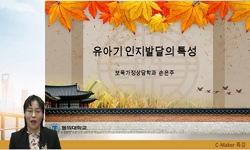Transcranial direct current stimulation (tDCS) is a noninvasive brain stimulation technique designed to improve both cognitive and physical function of stroke survivors. There are many studies being conducted in the search for an effective interventio...
http://chineseinput.net/에서 pinyin(병음)방식으로 중국어를 변환할 수 있습니다.
변환된 중국어를 복사하여 사용하시면 됩니다.
- 中文 을 입력하시려면 zhongwen을 입력하시고 space를누르시면됩니다.
- 北京 을 입력하시려면 beijing을 입력하시고 space를 누르시면 됩니다.
A NEW APRROACH TO TRANSCRANIAL DIRECT CURRENT STIMULATION IN IMPROVING COGNITIVE MOTOR LEARNING AND HAND FUNCTION WITH THE NINTENDO SWITCH IN STROKE SURVIVORS
한글로보기부가정보
다국어 초록 (Multilingual Abstract)
Transcranial direct current stimulation (tDCS) is a noninvasive brain stimulation technique designed to improve both cognitive and physical function of stroke survivors. There are many studies being conducted in the search for an effective intervention of tDCS. This study focuses on cognitive motor learning in relation to hand function of stroke survivors. 30 subjects with cognitive and hand function disorders were enrolled in this study. The participants in each group were inpatients from a hospital in Korea and had underwent neurorehabilitation training (60 mins). Groups 1 and 3 had tDCS applied for 20 minutes while group 2 received sham tdcs for the same duration. Afterwards, groups 1 and 2 played nintendo games for 20 minutes, but group 3 did not. The total intervention period was 40 minutes/day, 2 days/week, for 8 weeks. The cognitive and hand function of the subjects were assessed using the Trail Making Test (TMT-A, TMT-B), Grip strength, Box and Block Test (BBT), and the Manual function Test (MFT) before and after intervention. The tDCS + Nintendo Switch game group showed significant differences in TMT-A, TMT-B, Grip strength, MFT, and BBT results compared to the other groups when comparing before and after intervention (p<.05). Based on the results of this study, the inclusion of motor tasks with the application of tDCS may be more effective in improving cognitive and hand function of stroke survivors.











